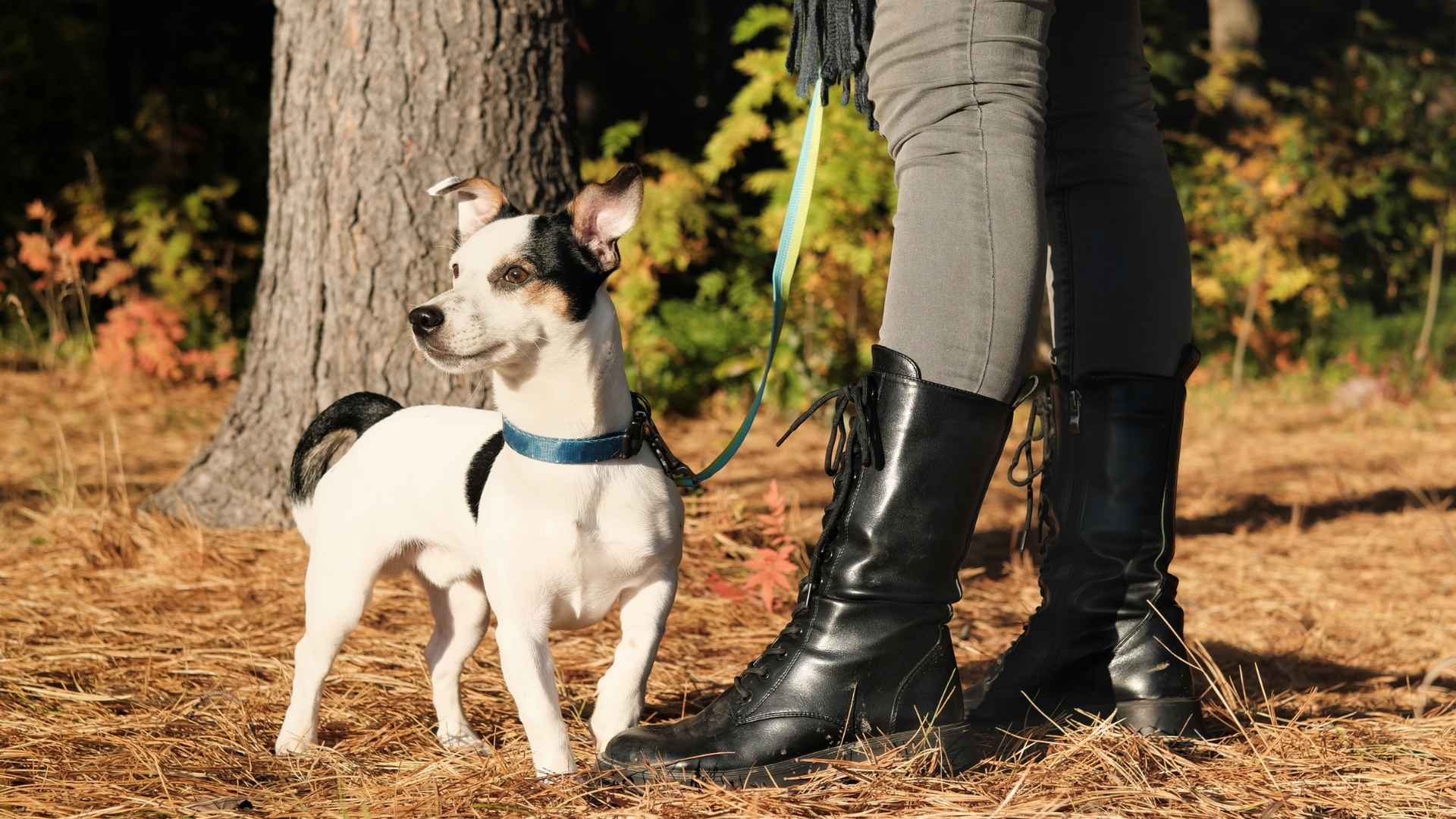Why do some dogs seem to light up the moment they hit a forest trail? Is it the scents in the air, the shifting light, the steady challenge of uneven ground?
While every dog enjoys a walk, not every dog is made for wild terrain and long hikes. Some breeds are natural-born explorers. They follow a trail like a story, with eyes focused and noses working overtime.
Their energy is steady, their footing confident, and their spirit curious. You don’t need to convince them to keep going—they want to see what’s around every bend. For nature lovers who spend vacations deep in the woods, the right dog turns a hike into a shared adventure.
If your perfect getaway includes trees, trails, and endless exploration, these dogs will match every step you take.
Dog Breeds That Love Visiting Forest Trails On Vacations
1. Vizsla
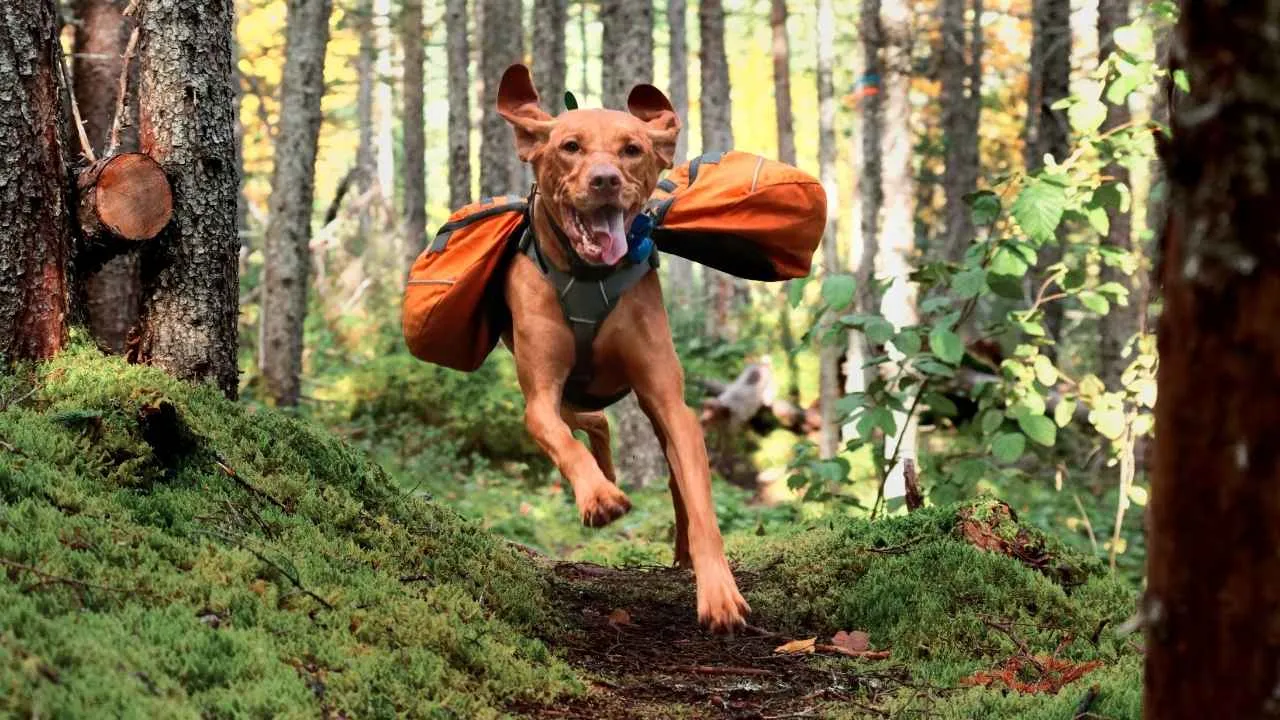
The Vizsla has a lean, muscular body that supports steady movement over long distances. Its deep chest and well-formed legs help it stay balanced across rocky paths and wooded terrain. This structure makes it one of the more capable athletic dogs for outdoor activity.
Natural Instincts in Forest Settings
With origins in Hungarian hunting history, this breed is known for staying alert in complex environments, as mentioned in the AKC. Their strong nose and focused temperament are helpful on forest trails. These traits let them move confidently through unfamiliar landscapes without getting overwhelmed.
Easily Guided with Early Structure
The Vizsla responds well when introduced to routines and outdoor boundaries early on. Hikers and dog owners familiar with proper training often find it easy to manage this breed’s energy on trails. Its willingness to stay engaged makes longer treks more enjoyable.
A Consistent Trail Partner
The Vizsla enjoys movement and is often eager to explore without hesitation. Its high endurance and willingness to stay active align well with hiking trips. As a hiking dog, it handles different terrains with enthusiasm and consistent pacing.
2. Australian Cattle Dog
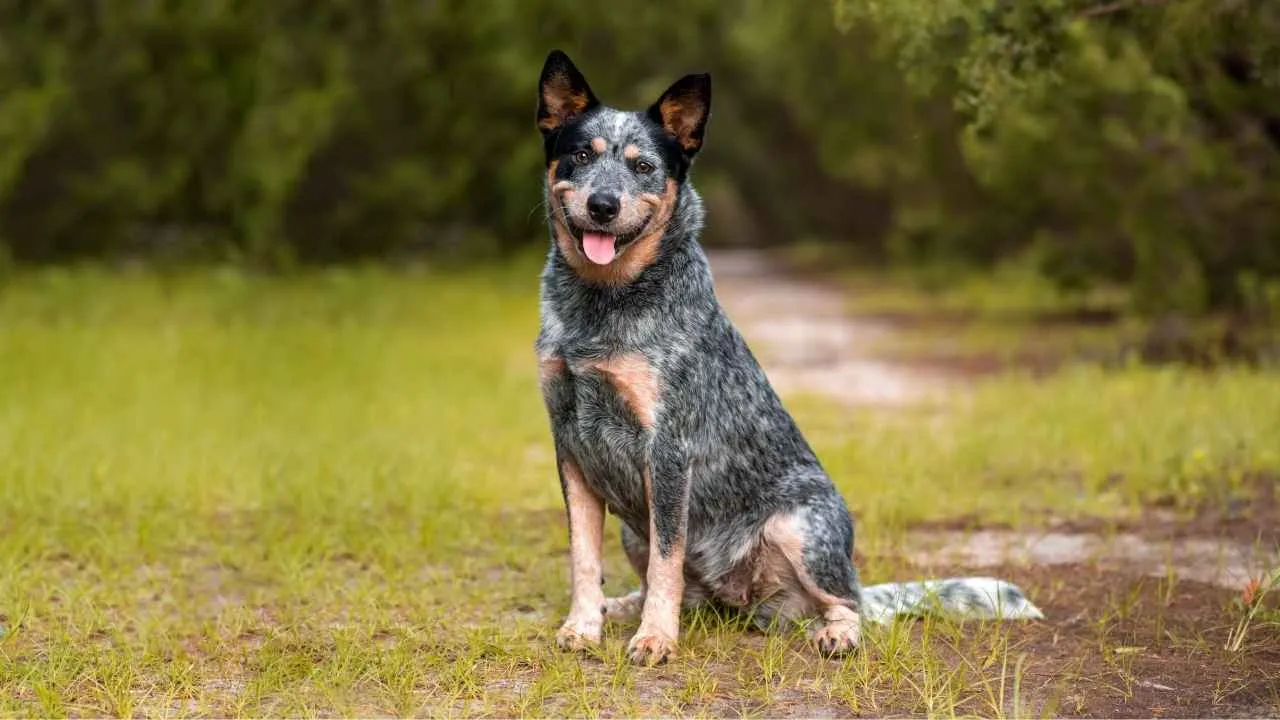
Australian Cattle Dogs have a compact, muscular frame and strong legs that handle uneven terrain with ease. Their paws are built to grip well on dirt, rock, and mud surfaces. These qualities help them stay sure-footed during long outdoor treks.
Focused and Energy-Efficient
They maintain alertness without overexertion, making it easier to pace them through forest trails. This breed typically moves with purpose, keeping energy in reserve for longer outings. Their behavior reflects their working background and need for structured physical outlets.
Trail Discipline with Social Awareness
With early socialization, they tend to stay composed around other dogs, especially during group hikes. They listen well and avoid unnecessary distractions when trained properly. This steadiness adds to their dependability on busy forest routes.
Bred to Move and Manage Terrain
They were originally bred for herding livestock across challenging landscapes in Australia, as mentioned in Zealandia Pets. That history shaped them into good hiking companions, especially on paths that require stamina and focus. Their endurance and trail manners make them ideal for outdoor explorers.
3. Jack Russell Terrier
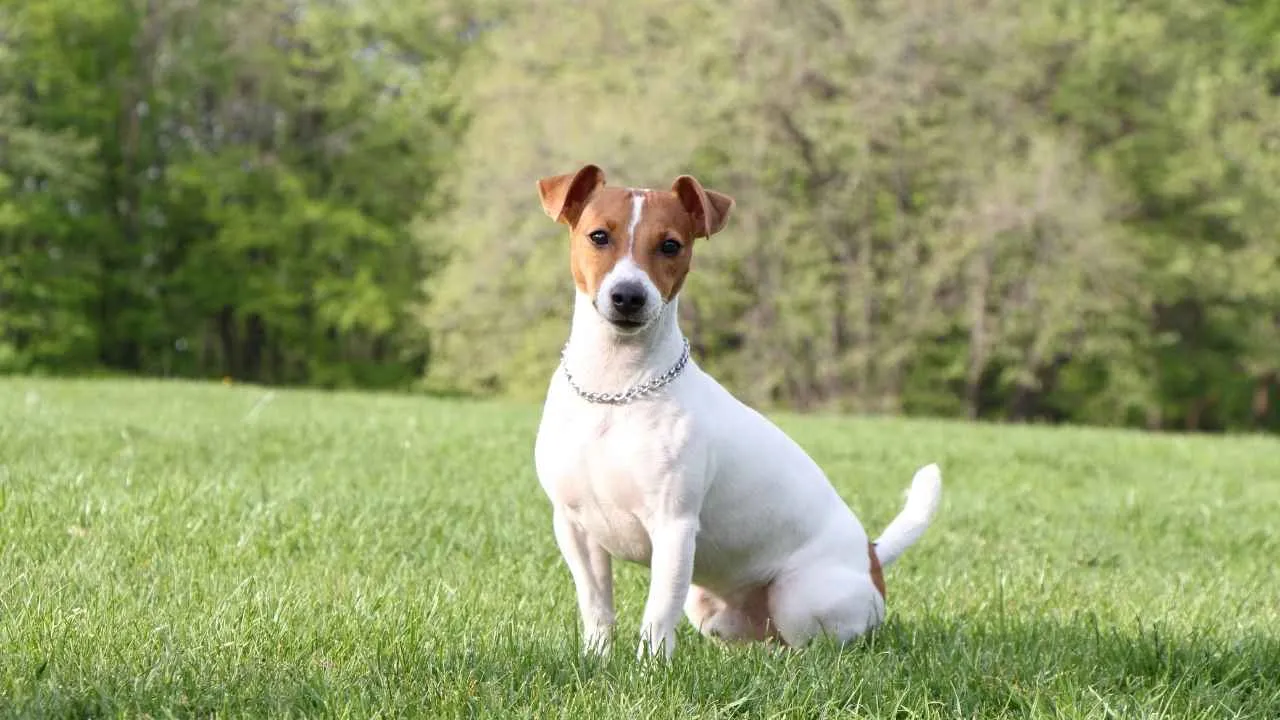
Jack Russell Terriers are compact but full of energy, making them suitable for long days in the forest. Their stamina is impressive for their size, often keeping up with larger dogs on trails. They rarely slow down, staying engaged through changes in terrain and weather.
Sharp Reflexes in Nature
This breed is quick-footed and highly responsive, with instincts developed from its fox-hunting roots in England. It stays alert to rustling leaves, shifting scents, or sudden movements in the environment. That awareness helps it stay focused during outdoor adventures without needing constant correction.
Eager Learner with Drive
Jack Russells are independent but highly trainable when mentally stimulated and guided early, as per Petplan. Their motivation to chase and explore fits well with structured trail walks, especially when supported by consistency. This same drive is what makes them strong performers in competitive dog sports today.
Strong and Agile on Trails
Their compact, muscular frame allows them to jump over logs, navigate rocky areas, and climb inclines with surprising ease. This physical ability places them among the great hiking dogs for people who want an agile, responsive companion. They move with purpose and enthusiasm.
4. Alaskan Malamute
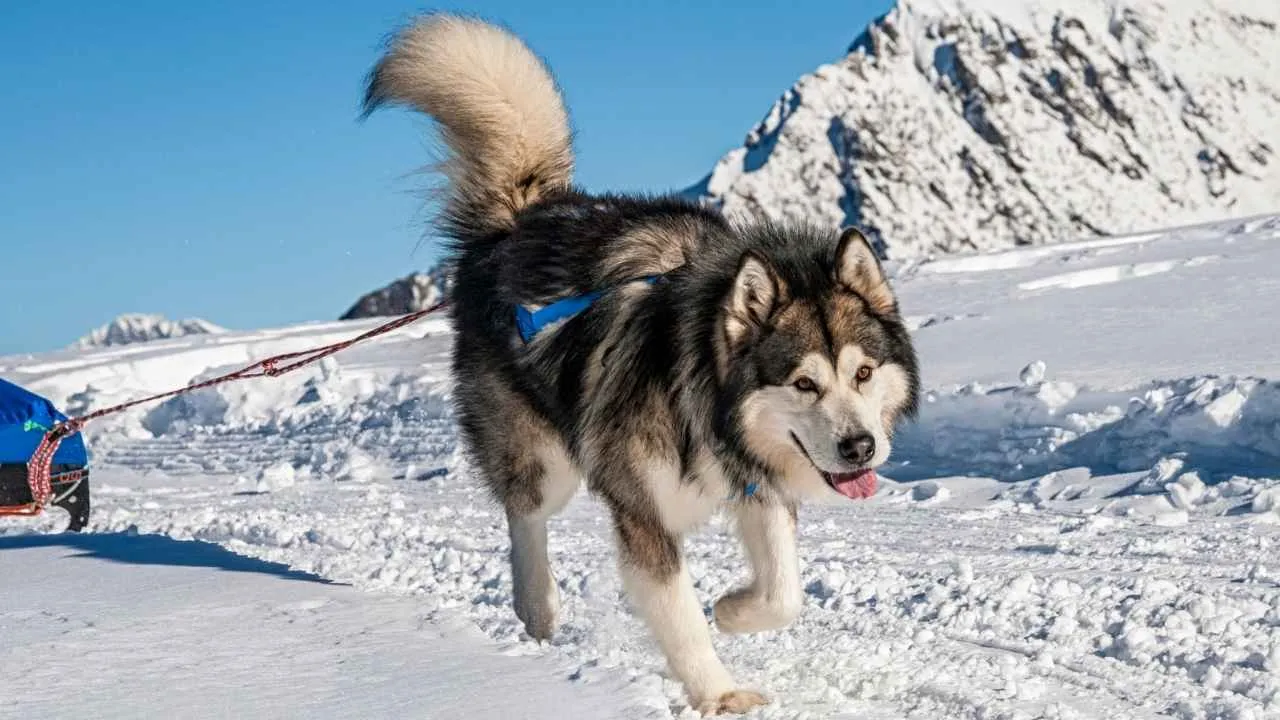
The Alaskan Malamute has a dense double coat, strong limbs, and a wide chest that supports endurance in cold and rough conditions. This structure allows it to move smoothly over trails with snow, mud, and uneven ground. It was bred for stamina, not just strength.
Motivated by Movement and Work
With deep sled-pulling roots, this breed remains driven when physically active. Alaskan Malamutes perform best when given purpose, especially in open spaces that encourage movement. Their build and behavior both suit long hikes through dense or open trails.
Best Suited for Active Owners
They fall into the category of energetic dogs that need consistent outdoor activity to stay mentally and physically satisfied. When paired with someone who enjoys regular adventure, they adjust easily to natural landscapes. Proper planning helps balance their high energy needs.
Responds to Direction and Independence
While intelligent and cooperative, each Malamute is an individual dog with unique motivation levels. They may explore more freely on trails, but stay responsive with early guidance. Understanding their independence is key to keeping outdoor trips enjoyable and safe.
5. Weimaraner
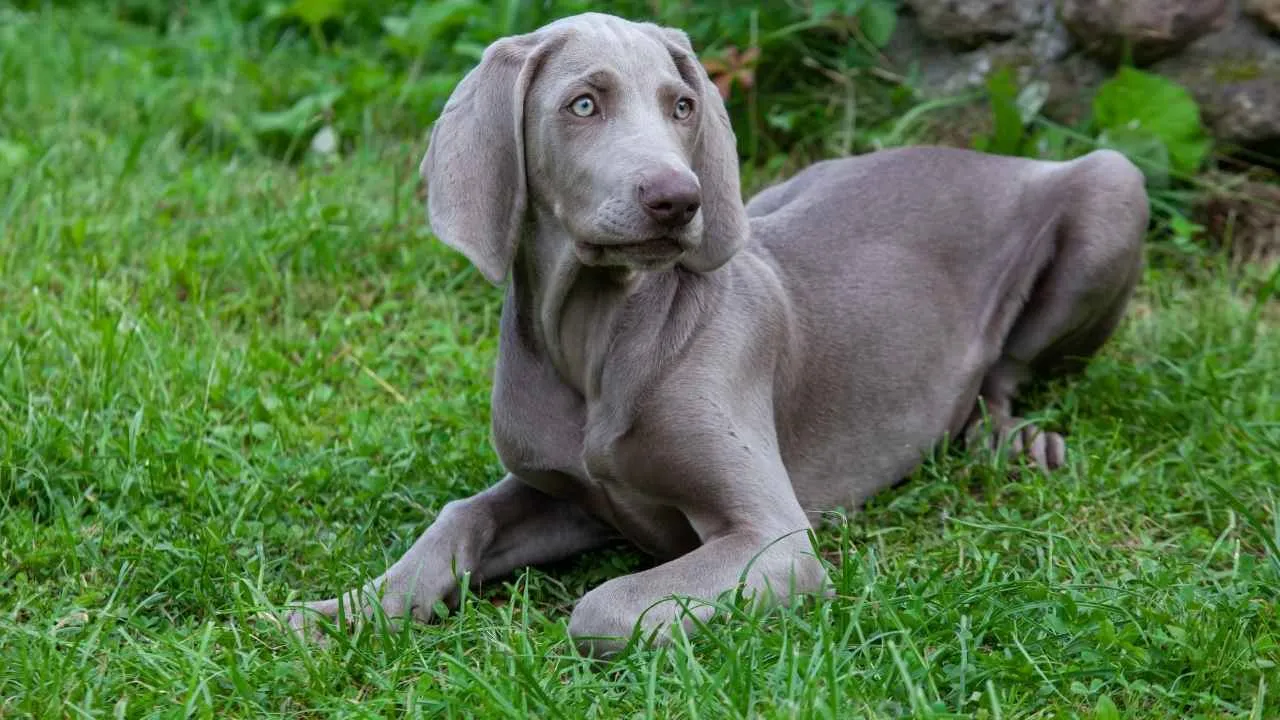
The Weimaraner has a sleek, athletic frame that handles elevation, loose dirt, and uneven ground with steady rhythm. Their long stride helps cover distance with less fatigue during extended hikes. They are often favored by travelers who enjoy an active lifestyle near forests or lakes.
Tuned in to Their Surroundings
Originally developed in Germany for big-game tracking, the breed has a deep-rooted awareness of natural terrain. They pick up on subtle trail shifts and stay attentive to both sound and scent. This trait makes them comfortable navigating dynamic outdoor conditions.
Structure Helps, But So Does Guidance
Weimaraners benefit when exercise is paired with direction, especially in unfamiliar terrain. Obedience training helps build control during high-stimulation moments, such as wildlife movement or unexpected hikers. Owners often find them easier to manage with consistent outdoor practice.
Energy That Matches the Trail Pace
Their energy level is one of the reasons they appear on many lists of best dog breeds for hiking. They don’t tire quickly and adapt well to physical activity spread over hours. Paired with their curiosity, this energy makes them strong trail companions.
6. Bernese Mountain Dog

Originally developed in the Swiss Alps, this breed’s muscular frame is well-suited for carrying loads and moving steadily across rough landscapes. Its wide chest and strong limbs make it ideal for forest trails. The Bernese Mountain Dog is a dependable walker across varying altitudes.
Comfortable in Cold Climates
This breed features a thick double coat that helps it manage low temperatures during high-altitude hikes. The coat acts as insulation in snowy or damp conditions. Its physical comfort in chilly forests makes it more adaptable than most warm-weather breeds.

Follows Instructions with Focus
With the right foundation in basic obedience commands, this breed tends to follow trail routines without resistance. Its calm, responsive behavior is easier to manage during longer walks. These qualities make it easier to coordinate rest stops and safe pacing.
Calm Demeanor in Nature Settings
Bernese Mountain Dogs are often described as steady and polite, especially outdoors. They adapt well to quiet environments and don’t startle easily in wooded areas. Their measured movements and patient attitude reflect the nature of dignified dogs.
7. Rhodesian Ridgeback

Rhodesian Ridgebacks have a strong frame and deep chest that support smooth, enduring movement over rough outdoor surfaces. Their muscle tone and balanced stride allow them to maintain pace for long periods. These powerfully built dogs were originally developed for stamina-heavy tasks.
Trail Awareness and Independence
This breed has sharp senses and tends to remain composed in unfamiliar surroundings. Their ability to assess terrain quickly makes them comfortable in forested or uneven hiking areas. They also tend to rely on their instincts without needing constant redirection.
Energy Balanced with Calmness
Ridgebacks are active, but not restless, which makes them easier to manage on extended outdoor trips, as per WebMD. They don’t require constant excitement and often fall into a steady rhythm during hikes. For those seeking the right dog to keep a trail pace, this breed fits naturally.
Enjoyment of Open Spaces
Though not overly hyper, they do enjoy engaging in physical activity with their humans. Their playful side appears more in open environments, especially when given space to explore. As fun-loving dogs, they make a great hiking companion for active households.
Conclusion
Forest trails change with every season, and so do the dogs who love to walk them. From off-leash control to terrain awareness, each of these breeds brings something valuable to your dog’s hike.
Some are calm giants, others are quick and nimble. But all share one thing: they make amazing hiking partners. Many of these breeds tolerate heat, adapt easily to long distances, and offer steady companionship on every climb.
Intelligent dogs with strong trail instincts make the perfect hiking partner for active families who love the outdoors. Whether it’s quiet walks or full-day adventures, these dogs walk for more than movement—they walk with you.


